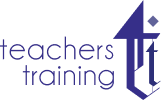Boost Your Career Development: Fast-Track Your Success with Online Courses
In today’s fast-paced and ever-evolving job market, career development has become more critical than ever, especially for young professionals in the UK. With industries constantly shifting and new technologies emerging, staying ahead of the curve isn’t just an advantage—it’s a necessity. Whether you’re just starting out, looking to climb the career ladder, or considering a change in direction, the ability to continuously develop your skills is key to unlocking new opportunities.
However, advancing your career isn’t without its challenges. For individuals aged 18-40, the journey often involves navigating a complex landscape. Identifying the right skills to focus on can be daunting, especially when the demands of the job market are always changing. Balancing learning with the pressures of work and personal life can also be overwhelming, making it hard to dedicate time to your professional growth. On top of that, the cost of quality education can be a significant barrier, preventing many from accessing the resources they need to succeed.
Fortunately, there’s a solution that’s both accessible and effective: online courses. Specifically, The Teachers Training’s course bundles offer a flexible and affordable way to overcome these challenges. By providing a wide range of courses tailored to different career stages and goals, these bundles empower you to take control of your career development on your terms. Whether you’re looking to gain new skills, enhance your existing knowledge, or explore new career paths, online learning offers the tools you need to achieve your professional aspirations.
Understanding Career Development
Definition and Importance: Career development is the ongoing process of managing your work life, learning new skills, and adapting to changes in your profession. It involves setting career goals, acquiring the necessary skills, and continuously improving to meet the demands of the ever-changing job market. For long-term professional success, career development is crucial because it ensures you remain competitive, relevant, and prepared for new opportunities. In a world where job roles and industries are rapidly evolving, those who actively engage in career development are better positioned to achieve their career aspirations and secure their future.
Stages of Career Development: Career development typically unfolds in stages, each with its own focus and challenges:
- Early Career: This stage often involves entry-level positions where the primary goal is to gain experience and develop foundational skills. Young professionals at this stage are learning to navigate the workplace, establish their reputation, and identify their career interests.
- Mid-Career: At this point, individuals usually seek to advance to higher-level positions, aiming for promotions, leadership roles, or specialization in their field. The mid-career stage often involves refining skills, expanding professional networks, and possibly pursuing further education to stay competitive.
- Career Change: Some professionals choose to switch careers entirely, either due to personal interests or changes in the job market. This stage requires significant learning and adaptation, as individuals must acquire new skills and knowledge to succeed in a different industry or role.
Key Skills for Career Growth: Certain skills are essential for career growth, regardless of the industry or stage of development:
- Communication: Effective communication is vital for success in any profession. It involves the ability to convey ideas clearly, listen actively, and collaborate with others.
- Leadership: Leadership skills are important not only for those in management positions but also for anyone looking to influence and inspire others. This includes decision-making, problem-solving, and the ability to guide teams toward achieving goals.
- Technical Expertise: In today’s digital age, technical skills are increasingly important across all industries. Whether it’s proficiency in software, data analysis, or industry-specific tools, having strong technical abilities can set you apart and open doors to advanced roles.
- Adaptability: The ability to adapt to new situations, technologies, and market trends is essential for long-term success. Being open to learning and change ensures that you can thrive in a dynamic work environment.
By understanding these stages and focusing on developing these core skills, you can create a solid foundation for your career development and position yourself for long-term success.
The Role of Online Learning in Career Development

Flexibility and Accessibility: One of the most compelling advantages of online learning is its flexibility. Unlike traditional classroom settings, online courses allow you to learn at your own pace, fitting your education around your work, personal life, and other commitments. This flexibility is particularly valuable for busy professionals who need to balance their learning with ongoing responsibilities. Additionally, online courses provide access to a wide range of subjects and specializations that might not be available locally. Whether you’re interested in enhancing your current skills or exploring entirely new fields, online learning platforms offer the convenience of studying from anywhere at any time, breaking down geographical and temporal barriers to education.
Affordability and Value: Online courses, especially those offered in bundled packages, present a cost-effective alternative to traditional education. Course bundles typically include multiple courses at a reduced rate, providing significant value for money. This affordability makes it easier for individuals to access a broad spectrum of learning opportunities without incurring the high costs often associated with in-person classes or degree programs. By investing in a course bundle, learners can gain a comprehensive set of skills and qualifications at a fraction of the cost, ensuring they get the best possible return on their educational investment.
Real-Life Success Stories: To illustrate the impact of online learning on career development, consider the following success stories:
- Emma, 29, Project Manager: Emma was looking to advance her career in project management but found traditional courses to be too costly and time-consuming. After enrolling in a course bundle from The Teachers Training, she gained certifications in project management and agile methodologies. The flexibility of online learning allowed her to study while working full-time, and within six months, she was promoted to a senior project management role.
- David, 35, Career Changer: David decided to switch from a career in finance to digital marketing. Unsure where to start, he chose a comprehensive online course bundle that covered everything from SEO to social media marketing. The bundled courses provided him with the skills and knowledge needed for his new career path, and he successfully landed a job as a digital marketing specialist within a few months.
- Sophie, 25, Early Career Professional: Sophie wanted to build her resume and gain additional qualifications early in her career. She opted for an online course bundle that included various business and communication courses. The affordable and accessible nature of the bundle allowed her to quickly gain new skills, and she was able to secure a role with a leading company shortly after completing her courses.
These real-life examples highlight how online learning can effectively support career development, offering a practical and valuable solution for professionals looking to advance their careers or make a change. By leveraging the benefits of flexibility, affordability, and real-world success, online courses become a powerful tool in achieving career goals.
Creating a Personalised Career Development Plan

Self-Assessment: The first step in creating a personalized career development plan is conducting a thorough self-assessment. This involves evaluating your current skills, interests, and career goals to gain a clear understanding of where you stand and where you want to go.
- Assess Your Skills: Start by listing your existing skills and qualifications. Consider both hard skills (technical expertise, certifications) and soft skills (communication, leadership). Reflect on feedback from performance reviews, peer evaluations, or personal achievements to identify strengths and areas for improvement.
- Identify Your Interests: Think about what excites you in your professional life. What are you passionate about? What tasks or projects do you enjoy the most? Understanding your interests helps in aligning your career path with activities that will keep you motivated and engaged.
- Define Your Career Goals: Outline your short-term and long-term career objectives. Where do you see yourself in the next year? Five years? Clarify what you hope to achieve, whether it’s a promotion, a career change, or acquiring new skills. Having clear goals will guide your decision-making process and help you stay focused.
Setting SMART Goals: Once you’ve completed your self-assessment, the next step is to set SMART goals. This framework ensures your objectives are clear and attainable, providing a roadmap for your career development.
- Specific: Define your goals with precise details. Instead of saying “I want to improve my skills,” specify “I want to become proficient in digital marketing by completing an online course and obtaining a certification.”
- Measurable: Establish criteria to track your progress. For example, “I will complete three online modules each month and take the final exam by the end of the quarter.”
- Achievable: Ensure your goals are realistic given your current situation and resources. Set goals that are challenging yet attainable based on your skills, experience, and available time.
- Relevant: Align your goals with your overall career aspirations. Make sure they are meaningful and directly contribute to your professional growth or desired career path.
- Time-bound: Set a clear timeframe for achieving your goals. Deadlines create urgency and help you stay motivated. For instance, “I will complete the entire course bundle within the next six months.”
Choosing the Right Courses: Selecting the right online courses is crucial for achieving your career development goals. Here are some tips to help you make informed choices:
- Match Courses with Goals: Look for courses that align with your specific career objectives. If you’re aiming for a promotion in project management, choose courses that enhance relevant skills, such as leadership and project planning.
- Review Course Content: Examine the course syllabus and materials to ensure they cover the topics you need to master. Ensure the content is up-to-date and relevant to current industry standards.
- Consider Course Format: Choose courses that fit your learning style and schedule. Some may prefer self-paced modules, while others benefit from live sessions or interactive elements.
- Check for Accreditation: Verify that the courses are accredited or recognised by relevant professional bodies. This ensures the qualifications you earn are respected in your industry.
- Explore Course Bundles: The Teachers Training’s course bundles offer a comprehensive approach to career development. Bundles provide multiple courses at a discounted rate, giving you a broad range of skills and knowledge. Evaluate which bundles fit your career goals and offer the best value for your investment.
By conducting a self-assessment, setting SMART goals, and choosing the right courses, you can create a personalized career development plan that effectively guides your professional growth and helps you achieve your career aspirations.
Industry-Specific Career Development Strategies
For Aspiring Teachers: If you’re aiming to build a career in teaching, there are several key areas where specialized training can make a significant difference.
- Education and Training Certifications: To start or advance in the teaching profession, consider obtaining qualifications such as the Level 3 Award in Education and Training (AET). This certification is essential for those looking to teach or train in various educational settings. It covers fundamental teaching skills, including lesson planning, assessment techniques, and classroom management.
- Specialised Teaching Courses: Look for courses that focus on specific educational techniques or subjects. For example, courses on inclusive education can help you address diverse learning needs, while those on digital teaching tools can enhance your ability to use technology effectively in the classroom.
- Professional Development: Engaging in ongoing professional development is crucial. Courses that offer advanced training or specializations, such as SEN (Special Educational Needs) or subject-specific pedagogy, can further enhance your teaching skills and open up new career opportunities.
For Healthcare Professionals: Advancing a career in healthcare often requires specialized knowledge and skills that go beyond basic qualifications.
- Health and Safety Certifications: Courses that focus on health and safety regulations, such as the Level 2 Award in Health and Safety in the Workplace, are valuable for ensuring you meet industry standards and best practices.
- Medical Administration: Courses in medical administration or healthcare management can be beneficial for those looking to move into administrative roles within healthcare settings. These courses cover essential topics such as medical records management, healthcare laws, and patient care coordination.
- Clinical Skills Development: For those in clinical roles, additional training in areas like first aid, patient assessment, or specific medical procedures can enhance your capabilities and career prospects.
For Tech Enthusiasts: The technology sector is dynamic and constantly evolving, making continuous learning essential for staying ahead.
- Coding and Programming: To develop your coding skills, consider enrolling in courses that teach popular programming languages such as Python, JavaScript, or SQL. These languages are widely used in various tech roles and offer a solid foundation for further specialization.
- IT Management: For those interested in IT management or network administration, courses in ITIL (Information Technology Infrastructure Library) or CompTIA certifications can provide valuable knowledge and improve your credentials.
- Digital Marketing: As digital marketing becomes increasingly important, courses on SEO (Search Engine Optimization), content marketing, and social media strategies are highly beneficial. These courses will help you understand how to leverage digital tools to drive business growth and enhance your career prospects in the tech industry.
By focusing on these industry-specific courses and certifications, you can tailor your career development efforts to meet the unique demands of your chosen field. Whether you’re aiming for a role in education, healthcare, or technology, targeted training will equip you with the skills and qualifications needed to excel and advance in your career.

Overcoming Common Career Development Challenges
Time Management Tips: Balancing work, life, and learning can be challenging, but effective time management can make it more manageable.
- Set a Study Schedule: Create a structured study plan by allocating specific times each week dedicated to learning. Incorporate these sessions into your existing routine to ensure you stay consistent. Use tools like calendars or productivity apps to track your progress and keep you on schedule.
- Prioritise Tasks: Determine your most urgent and important tasks and tackle them first. Apply techniques like the Eisenhower Matrix to categorize tasks based on their urgency and importance, helping you focus on what truly matters.
- Break Down Learning Goals: Divide your learning objectives into smaller, manageable tasks. Instead of setting a broad goal like “complete the course,” aim for specific milestones such as “finish Module 1 by Friday.” This approach helps you maintain focus and measure progress more effectively.
- Use Downtime Wisely: Utilise spare moments during your day, such as commuting or waiting for appointments, to review course materials or listen to educational podcasts. These small increments of learning can add up over time.
Staying Motivated: Maintaining motivation throughout the learning process is crucial for achieving your career development goals.
- Join Online Communities: Engage with online forums, study groups, or social media communities related to your courses. Connecting with others who share similar goals can provide support, inspiration, and accountability.
- Set Small Milestones: Break your larger goals into smaller, achievable milestones and celebrate each one as you reach it. Recognizing your progress keeps you motivated and provides a sense of accomplishment.
- Create a Reward System: Reward yourself for completing study sessions or achieving milestones. Whether it’s a small treat, a day off, or a fun activity, having something to look forward to can boost your motivation.
- Visualise Your Success: Regularly remind yourself of the benefits and goals you’re working towards. Visualisation techniques, such as imagining your future career success or visualising the skills you’ll acquire, can help keep your motivation high.
Budgeting for Your Education: Financing your education doesn’t have to be a barrier to career development. Here are some tips to manage your budget effectively:
- Take Advantage of Discounts: Look for discounts and promotions on course bundles offered by The Teachers Training. Bundles often provide significant savings compared to purchasing individual courses, making it a cost-effective way to gain multiple qualifications.
- Explore Payment Plans: Some online learning platforms offer flexible payment options or installment plans. This can make it easier to manage the cost of your education without straining your budget.
- Invest in Value: Focus on courses that offer the best value for your money. Course bundles that include multiple relevant courses can provide more comprehensive training at a lower cost compared to individual courses.
- Seek Financial Assistance: Research if there are any grants, scholarships, or financial aid options available for online learners. Some professional organizations and educational institutions offer financial support for career development.
By implementing these strategies for time management, staying motivated, and budgeting for education, you can effectively navigate common challenges and make steady progress toward achieving your career development goals.
In this guide, we’ve explored how to fast-track your career development through effective strategies and resources. We began by understanding the importance of career development and the various stages involved, from early career to mid-career and career changes. We discussed how online learning, with its flexibility and affordability, plays a crucial role in overcoming common career challenges. We also provided industry-specific advice for aspiring teachers, healthcare professionals, and tech enthusiasts to help you choose the right courses tailored to your career goals. Finally, we shared practical tips for managing your time, staying motivated, and budgeting for continuous education.
To take the next step in advancing your career, visit The Teachers Training’s course bundle page. Explore our comprehensive range of courses designed to help you achieve your professional aspirations and gain the skills needed to succeed in today’s competitive job market.
Final Thought: Investing in your career is one of the most impactful decisions you can make for your future. Continuous learning not only enhances your skills but also opens doors to new opportunities and personal growth. Embrace the journey of career development with enthusiasm and dedication, knowing that each step you take brings you closer to achieving your dreams and building a fulfilling career. Remember, the pursuit of knowledge is a lifelong endeavor, and every effort you make today lays the foundation for a brighter, more successful tomorrow.





